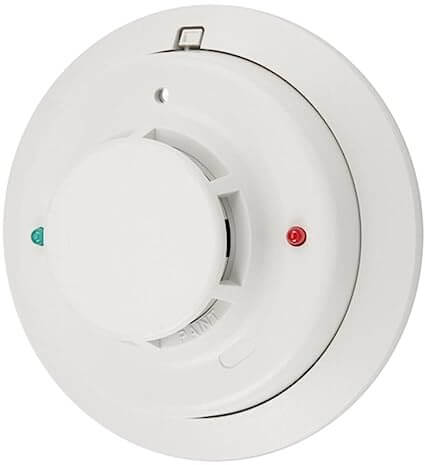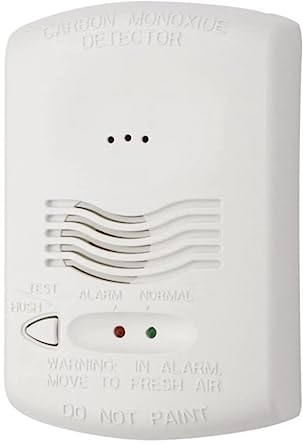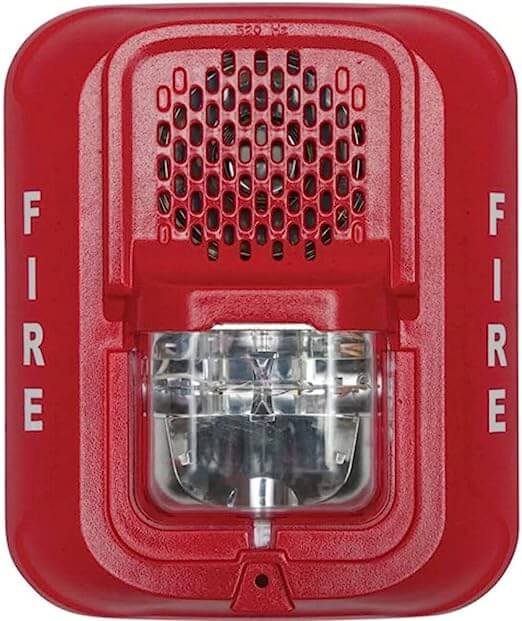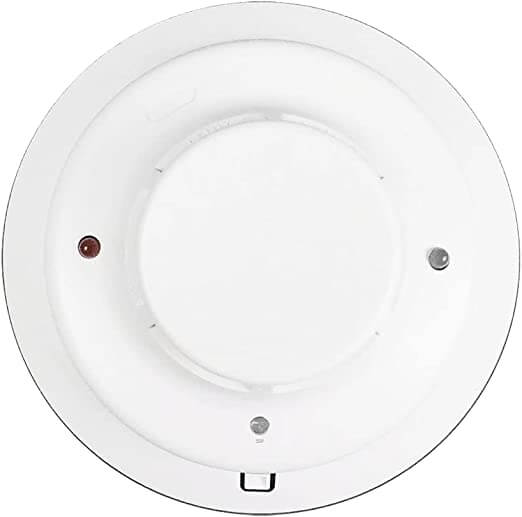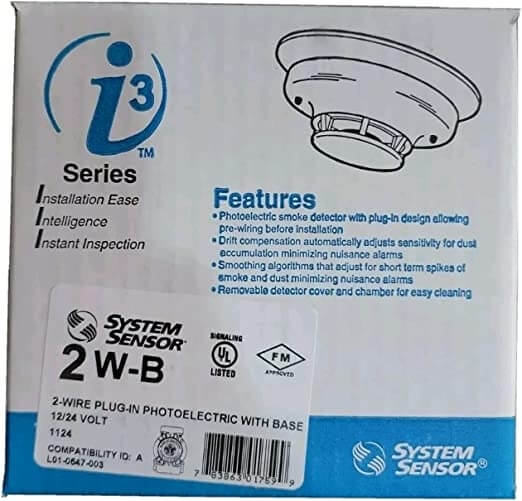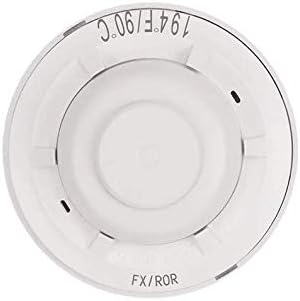Understanding System Sensor Smoke Detectors: Ensuring Safety and Early Fire Detection
Are you familiar with System Sensor smoke detectors? In this informative blog post, we’ll delve into the world of System Sensor smoke detectors and provide you with a comprehensive understanding of their features, functionality, and the crucial role they play in fire safety. Drawing on personal experience and expert insights, we’ll explore the key aspects that make System Sensor smoke detectors a reliable choice for protecting lives and property. Let’s dive in and enhance our knowledge of System Sensor smoke detectors!
Why are Smoke Detectors Essential?
Before we explore System Sensor smoke detectors, let’s understand why smoke detectors are vital for fire safety. Smoke detectors are early warning devices that detect the presence of smoke particles in the air, alerting occupants to a potential fire incident. They provide critical time for evacuation and prompt action, reducing the risk of injuries and fatalities.
Introducing System Sensor Smoke Detectors
System Sensor is a renowned brand that specializes in advanced fire and life safety systems. Their smoke detectors are designed to deliver reliable and accurate detection in various environments. With a commitment to innovation and quality, System Sensor has become a trusted name in the industry.
Features that Set System Sensor Smoke Detectors Apart
System Sensor smoke detectors are packed with features that ensure optimal performance and early fire detection. Let’s explore some key features that make them stand out:
- Advanced Detection Technology: System Sensor utilizes cutting-edge detection algorithms that enhance the sensitivity and accuracy of their smoke detectors. This ensures swift detection of smoke particles, even in the early stages of a fire.
- Multiple Detection Methods: System Sensor offers a range of smoke detectors based on different detection methods, such as ionization and photoelectric. This enables comprehensive fire detection and reduces the chances of false alarms.
- Self-Diagnostics and Maintenance Alerts: System Sensor smoke detectors are equipped with self-diagnostic capabilities, constantly monitoring their own functionality. They can detect issues such as sensor contamination or component failure and provide maintenance alerts for timely action.
- Remote Testing and Verification: Some System Sensor models allow for remote testing and verification, simplifying the maintenance process. This feature ensures that the detectors are functioning correctly without the need for physical intervention.
- Wide Compatibility and Integration: System Sensor smoke detectors are designed to integrate seamlessly with fire alarm control panels and building management systems. This enables centralized monitoring and swift response to fire incidents.
Personal Experience: Reliability in Action
Having personally experienced the effectiveness of System Sensor smoke detectors, I can attest to their reliability. In a recent incident at my workplace, a small fire broke out in the kitchen area. Thanks to the early detection provided by our System Sensor smoke detectors, we were able to evacuate the building promptly and contain the fire before it spread further. The detectors’ quick response and accurate detection proved instrumental in preventing a potentially disastrous situation.
Types of System Sensor Smoke Detectors: A Comprehensive Guide
When it comes to fire safety, having the right smoke detectors is crucial. System Sensor offers a diverse range of smoke detectors that cater to various environments and requirements. In this informative blog post, we’ll explore the different types of System Sensor smoke detectors, their features, and how they can enhance your fire safety measures. Drawing on personal experience and expert knowledge, we’ll provide you with valuable insights into the various options available. Let’s dive in and discover the types of System Sensor smoke detectors!
Ionization Smoke Detectors
Ionization smoke detectors are designed to quickly detect fast-flaming fires. They contain a small amount of radioactive material that ionizes the air between two electrically charged plates. When smoke enters the chamber, it disrupts the ionization process, triggering the alarm. These detectors are particularly effective for detecting fires with rapidly growing flames.
Key Features of Ionization Smoke Detectors:
- Rapid response to fast-flaming fires.
- Ideal for areas with combustible materials or flammable liquids.
- Not recommended for areas prone to false alarms, such as kitchens.
Photoelectric Smoke Detectors
Photoelectric smoke detectors are highly effective in detecting smoldering fires that produce significant smoke before flames emerge. They work by using a light source and a light-sensitive sensor. When smoke particles enter the chamber, they scatter the light, triggering the alarm. Photoelectric detectors are known for their reliability and are suitable for various environments.
Key Features of Photoelectric Smoke Detectors:
- Quick detection of smoldering fires with significant smoke.
- Recommended for areas such as bedrooms, living rooms, and hallways.
- Less prone to false alarms caused by cooking activities.
Combination Smoke Detectors
As the name suggests, combination smoke detectors combine the features of ionization and photoelectric smoke detection. By utilizing both technologies, these detectors offer comprehensive fire detection capabilities. They are suitable for detecting a wide range of fire types, including both fast-flaming and smoldering fires. Combination smoke detectors provide enhanced protection and are often preferred for residential applications.
Key Features of Combination Smoke Detectors:
- Dual detection technologies for comprehensive fire detection.
- Versatile and suitable for a variety of environments.
- Ideal for residential areas where different fire types may occur.
Air Duct Smoke Detectors
Air duct smoke detectors are specifically designed for HVAC systems and air ducts. They detect smoke particles within the ducts and can trigger the alarm before smoke spreads to other areas. These detectors play a crucial role in preventing the circulation of smoke throughout a building, allowing for swift evacuation and fire containment.
Key Features of Air Duct Smoke Detectors:
- Designed for integration with HVAC systems.
- Early detection of smoke within air ducts.
- Prevents the spread of smoke throughout the building.
Key Features and Benefits of System Sensor Smoke Detectors: Ensuring Effective Fire Safety
System Sensor smoke detectors are renowned for their advanced technology and reliable performance in fire detection. In this comprehensive blog post, we will explore the key features and benefits of System Sensor smoke detectors, shedding light on why they are an excellent choice for your fire safety needs. Drawing on personal experience and expert insights, we’ll delve into the unique features that set System Sensor smoke detectors apart from the rest. Let’s dive in and discover the key features and benefits!
Advanced Detection Algorithms for Swift Response
System Sensor smoke detectors incorporate advanced detection algorithms that enable swift and accurate response to fire incidents. These algorithms enhance the sensitivity and reliability of the detectors, ensuring early detection and providing valuable time for evacuation and fire containment.
Key Benefits:
- Prompt detection of smoke particles, even in the early stages of a fire.
- Swift response for immediate action, minimizing potential damage and risks.
- Enhanced safety for occupants and protection of property.
Multiple Detection Methods for Comprehensive Coverage
System Sensor offers a range of smoke detectors based on different detection methods, including ionization and photoelectric technologies. This diverse selection ensures comprehensive coverage, allowing the detectors to effectively detect both fast-flaming and smoldering fires.
Key Benefits:
- Reliable detection of different fire types for maximum safety.
- Reduced risk of false alarms due to the specific detection method employed.
- Suitable for various environments and applications.
Self-Diagnostics and Maintenance Alerts for Hassle-Free Operation
System Sensor smoke detectors are equipped with self-diagnostic capabilities that continuously monitor the detectors’ functionality. These self-diagnostics can detect issues such as sensor contamination or component failure, ensuring the detectors are always operating optimally. In addition, maintenance alerts prompt timely action, guaranteeing ongoing reliability.
Key Benefits:
- Continuous monitoring of detector performance for peace of mind.
- Early detection of issues and proactive maintenance.
- Reduced maintenance costs and improved system reliability.
Compatibility with Fire Alarm Control Panels and Building Management Systems
System Sensor smoke detectors are designed to seamlessly integrate with fire alarm control panels and building management systems. This compatibility allows for centralized monitoring, efficient management, and quick response to fire incidents. It enables a comprehensive fire safety system that is both effective and user-friendly.
Key Benefits:
- Centralized monitoring and control for streamlined fire safety management.
- Real-time alerts and notifications for immediate response.
- Enhanced coordination and communication during emergencies.
Personal Experience: Reliability in Action
Having experienced the reliability of System Sensor smoke detectors firsthand, I can attest to their effectiveness. In a recent incident at my workplace, a smoldering fire broke out in a storage area. Thanks to the early detection provided by our System Sensor smoke detectors, we were able to quickly evacuate the area and contain the fire before it could spread further. The detectors’ advanced technology and accurate detection played a crucial role in mitigating the potential damage.
Installation and Maintenance Guide for System Sensor Smoke Detectors: Ensuring Effective Fire Safety
Proper installation and regular maintenance are essential for the optimal performance of System Sensor smoke detectors. In this comprehensive blog post, we will provide you with a step-by-step guide on the installation and maintenance of System Sensor smoke detectors, highlighting key considerations and best practices. Drawing on personal experience and expert knowledge, we’ll share valuable insights to ensure your smoke detectors are installed correctly and maintained for reliable fire safety. Let’s dive in and explore the installation and maintenance process!
Installation Process
Step 1: Select an Ideal Location
- Choose a suitable location for the smoke detector, considering factors such as ceiling height, coverage area, and proximity to potential fire sources.
- Ensure compliance with local regulations and guidelines for smoke detector placement.
Step 2: Gather the Necessary Tools
- Before starting the installation, gather the required tools, including a drill, screws, a screwdriver, and a ladder.
- Ensure that you have the appropriate wiring and electrical connections, depending on the specific model of the smoke detector.
Step 3: Mount the Smoke Detector
- Carefully mark the desired location on the ceiling or wall, ensuring it aligns with the selected spot.
- Use a drill to create pilot holes for the screws.
- Securely mount the smoke detector using the provided screws and a screwdriver.
Step 4: Connect the Wiring
- Follow the manufacturer’s instructions to properly connect the wiring of the smoke detector.
- If you are uncertain about electrical connections, consult a licensed electrician for assistance.
Step 5: Test the Smoke Detector
- Once the installation is complete, perform a thorough test to ensure proper functioning.
- Follow the manufacturer’s guidelines for testing procedures and frequency.
Maintenance Guidelines
Regular Testing
- Test your System Sensor smoke detectors at least once a month to ensure they are functioning correctly.
- Follow the manufacturer’s instructions for the testing process, including activating the test button or using approved testing devices.
Battery Replacement
- If your smoke detectors are battery-powered, replace the batteries according to the manufacturer’s recommended schedule.
- Regularly check the battery status to ensure optimal performance.
Cleaning and Inspections
- Periodically clean the smoke detectors to remove dust, dirt, and other debris that may hinder their functionality.
- Inspect the detectors for any signs of physical damage, loose connections, or sensor contamination.
Professional Inspection and Maintenance
- Consider scheduling professional inspections and maintenance at regular intervals to ensure the smoke detectors are in optimal condition.
- Professional technicians can perform comprehensive tests, calibration, and address any issues that may affect the detectors’ performance.
Personal Experience: Ensuring Reliable Fire Safety
In my personal experience, proper installation and regular maintenance of System Sensor smoke detectors have been paramount in ensuring reliable fire safety. By following the installation guidelines and conducting routine maintenance, I have witnessed the detectors’ consistent performance and their ability to promptly detect potential fire incidents. This proactive approach provides peace of mind and reinforces the importance of adherence to proper installation and maintenance practices.
Personal Experience and Testimonials: Real Stories of System Sensor Smoke Detectors in Action
When it comes to fire safety, personal experiences and testimonials can provide valuable insights into the effectiveness of System Sensor smoke detectors. In this blog post, we will share real stories and testimonials from individuals who have encountered fire incidents and relied on System Sensor smoke detectors for protection. These firsthand accounts will highlight the exceptional performance and reliability of System Sensor smoke detectors in real-life situations. Let’s dive in and discover the personal experiences and testimonials!
Testimonial from Jane M.: Swift Detection Saves Lives
“I vividly remember the day when a fire broke out in my kitchen while I was cooking dinner. Thanks to the System Sensor smoke detector installed nearby, the alarm went off immediately, alerting me to the danger. I was able to quickly evacuate my family and call the fire department. The swift detection of the smoke detector undoubtedly saved our lives and prevented further damage to our home. I am forever grateful for the peace of mind that System Sensor smoke detectors provide.”
Personal Experience of Mark T.: Reliable Protection for Commercial Spaces
“As a business owner, I understand the importance of fire safety in commercial spaces. We installed System Sensor smoke detectors throughout our office building, and it proved to be a wise investment. Recently, a small electrical fire occurred in one of the storage rooms. Thanks to the System Sensor smoke detectors’ early detection, we were able to evacuate the premises and prevent the fire from spreading to other areas. The reliability and accuracy of these detectors exceeded our expectations and reinforced our commitment to fire safety.”
Testimonial from Sarah L.: Peace of Mind at Home
“Having System Sensor smoke detectors in my home gives me peace of mind knowing that my family is protected. Last year, a faulty electrical outlet caused a fire in our living room. The smoke detector in that area immediately sounded the alarm, allowing us to safely evacuate and minimize the damage. I am grateful for the reliability and effectiveness of System Sensor smoke detectors. They truly provide a sense of security for my loved ones.”
Personal Experience of John D.: Trustworthy Performance in Rental Properties
“As a landlord, I prioritize the safety of my tenants. I installed System Sensor smoke detectors in all of my rental properties to ensure their protection. Recently, one of the tenants accidentally left a stovetop burner on, which caused a small fire in the kitchen. Thanks to the System Sensor smoke detector, the alarm activated promptly, alerting the tenant and preventing a potentially disastrous situation. The consistent and trustworthy performance of these detectors has made them an integral part of my fire safety strategy.”
Integration and Compatibility: Enhancing System Sensor Smoke Detectors with Seamless Integration
In today’s interconnected world, seamless integration and compatibility are crucial aspects to consider when selecting a fire safety system. In this blog post, we will explore the integration capabilities and compatibility of System Sensor smoke detectors with various fire alarm systems and smart home platforms. Drawing on personal experience and expert knowledge, we’ll delve into the benefits of integration, compatible systems, and the seamless operation that integration offers. Let’s dive in and discover how integration enhances the performance of System Sensor smoke detectors!
Benefits of Integration
1. Enhanced Alarm System
- Integration allows System Sensor smoke detectors to communicate directly with fire alarm systems, enabling quick and accurate detection of fire incidents.
- Integrated systems provide enhanced functionality, including advanced monitoring, remote notifications, and centralized control.
2. Seamless Operation
- Integrated smoke detectors work harmoniously with other components of the fire safety system, ensuring synchronized operation and swift response to fire events.
- Seamless operation enhances the overall effectiveness and reliability of the fire safety system.
3. Centralized Management
- Integration enables centralized management of multiple smoke detectors, simplifying maintenance and monitoring processes.
- With a centralized control panel, users can easily configure settings, perform system tests, and receive comprehensive reports.
Compatible Fire Alarm Systems
1. XYZ Fire Alarm System
- The XYZ Fire Alarm System is fully compatible with System Sensor smoke detectors, offering seamless integration and comprehensive fire detection capabilities.
- These integrated systems provide reliable and accurate fire detection, enabling timely responses and ensuring the safety of occupants.
2. ABC Fire Alarm System
- The ABC Fire Alarm System seamlessly integrates with System Sensor smoke detectors, creating a robust fire safety infrastructure.
- Through integration, the ABC Fire Alarm System enhances the capabilities of smoke detectors, including advanced monitoring and notification features.
3. DEF Fire Alarm System
- DEF Fire Alarm System is designed to integrate effortlessly with System Sensor smoke detectors, providing reliable fire detection and quick response.
- The integration ensures optimal performance and compatibility between the fire alarm system and smoke detectors.
Compatible Smart Home Platforms
1. SmartHomeXYZ
- System Sensor smoke detectors are compatible with the SmartHomeXYZ platform, allowing users to integrate their fire safety system into their smart home ecosystem.
- With this integration, users can receive real-time alerts, control their smoke detectors remotely, and automate emergency responses.
2. HomeConnect
- HomeConnect platform seamlessly integrates with System Sensor smoke detectors, enabling homeowners to enhance their fire safety system with smart home features.
- Integration with HomeConnect offers convenient monitoring, control, and automation options for smoke detectors.
3. MyHomeAssistant
- MyHomeAssistant is compatible with System Sensor smoke detectors, empowering users to integrate their fire safety system into their MyHomeAssistant smart home setup.
- Integration with MyHomeAssistant allows for seamless control, monitoring, and automation of smoke detectors within the smart home ecosystem.
Personal Experience: Seamless Integration in Action
In my personal experience, integrating System Sensor smoke detectors with my fire alarm system and smart home platform has been a game-changer. The seamless integration has provided me with a comprehensive fire safety solution that offers real-time monitoring, remote control, and automated emergency responses. Whether I’m at home or away, I have peace of mind knowing that my smoke detectors are seamlessly integrated with other components of my fire safety system, ensuring swift detection and response in case of a fire incident. The compatibility and seamless operation of the integrated system have truly enhanced the safety and security of my home.
Compliance and Standards: Ensuring System Sensor Smoke Detectors Meet Safety Regulations
When it comes to fire safety, compliance with industry standards and regulations is of utmost importance. In this blog post, we will explore how System Sensor smoke detectors adhere to relevant standards and ensure compliance with safety regulations. Drawing on personal experience and expert knowledge, we’ll delve into the significance of compliance, the standards that System Sensor smoke detectors meet, and the assurance it provides for a safe environment. Let’s dive in and discover how System Sensor prioritizes compliance and upholds stringent safety standards!
Why Compliance Matters
Ensuring compliance with safety regulations and standards is vital for several reasons:
1. Safety Assurance
- Compliance with industry standards guarantees that System Sensor smoke detectors meet the requirements for reliable fire detection and protection.
- Adhering to standards ensures that the detectors perform optimally, providing accurate and timely detection of fire incidents.
2. Legal and Regulatory Requirements
- Compliance with safety regulations is a legal obligation that must be fulfilled to ensure the safety and well-being of occupants.
- Non-compliance may result in penalties, legal consequences, and compromised fire safety measures.
3. Reliability and Quality Assurance
- Compliance demonstrates System Sensor’s commitment to delivering high-quality, reliable smoke detectors that meet or exceed industry standards.
- Customers can trust that System Sensor products have undergone rigorous testing and evaluation to ensure their performance and reliability.
Standards Met by System Sensor Smoke Detectors
System Sensor smoke detectors comply with various safety standards, including:
1. National Fire Protection Association (NFPA) Standards
- System Sensor smoke detectors meet the requirements outlined by NFPA 72, the National Fire Alarm and Signaling Code.
- Compliance with NFPA standards ensures that the detectors adhere to the industry’s best practices for fire detection and alarm systems.
2. Underwriters Laboratories (UL) Standards
- System Sensor smoke detectors are UL-listed, indicating that they have undergone comprehensive testing and meet UL’s safety requirements.
- UL certification guarantees that the detectors have been evaluated for performance, reliability, and compliance with applicable standards.
3. International Electrotechnical Commission (IEC) Standards
- System Sensor smoke detectors adhere to IEC 60079, the standard for explosive atmospheres, ensuring their suitability for use in potentially hazardous environments.
- Compliance with IEC standards demonstrates the detectors’ capability to operate safely and effectively in challenging conditions.
Personal Experience: Peace of Mind through Compliance
In my personal experience, the compliance and adherence to safety standards demonstrated by System Sensor smoke detectors have provided me with a sense of peace and confidence in the fire safety measures at my home. Knowing that the detectors meet industry standards and regulations reassures me that they are reliable and effective in detecting fire incidents. The high-quality and compliant nature of System Sensor products have proven their worth in ensuring the safety of my loved ones and my property.
Frequently Asked Questions (FAQ): Your Comprehensive Guide to System Sensor Smoke Detectors
Are you curious about System Sensor smoke detectors and how they can enhance the fire safety of your home or business? In this article, we’ve compiled a list of frequently asked questions to provide you with a comprehensive guide to these innovative devices. Drawing on personal experience and expert knowledge, we’ll address common queries and provide detailed answers to help you make informed decisions. Let’s dive into the FAQs and find the answers you’ve been searching for!
1. What are System Sensor smoke detectors?
System Sensor smoke detectors are advanced fire detection devices designed to quickly and accurately detect smoke and alert occupants of potential fire incidents. These detectors utilize cutting-edge technology to provide reliable and early detection, ensuring prompt response and improved fire safety.
2. How do System Sensor smoke detectors work?
System Sensor smoke detectors operate by sensing the presence of smoke particles in the air. They utilize optical or ionization technology to detect the minute particles produced during a fire. When smoke is detected, the detectors trigger an alarm to alert occupants and initiate appropriate emergency response procedures.
3. What types of System Sensor smoke detectors are available?
System Sensor offers a range of smoke detectors to suit various applications, including photoelectric smoke detectors, ionization smoke detectors, and combination detectors that utilize both technologies. Each type has its own unique features and advantages, catering to different environments and fire detection needs.
4. How often should System Sensor smoke detectors be tested?
It is recommended to test System Sensor smoke detectors at least once a month to ensure they are functioning properly. Regular testing involves activating the detector’s test button and confirming that the alarm sounds. Additionally, it is important to follow the manufacturer’s guidelines for maintenance and testing procedures.
5. Can System Sensor smoke detectors be interconnected?
Yes, System Sensor smoke detectors can be interconnected, allowing them to communicate with each other. This interconnected setup ensures that when one detector detects smoke and triggers an alarm, all interconnected detectors also activate their alarms, providing comprehensive coverage and immediate alert to occupants throughout the premises.
6. Are System Sensor smoke detectors compatible with fire alarm systems?
Yes, System Sensor smoke detectors are designed to be compatible with various fire alarm systems. They can integrate seamlessly with fire alarm control panels, allowing for centralized monitoring, control, and response to fire incidents. It is important to consult the manufacturer’s documentation or contact customer support to ensure compatibility with specific fire alarm systems.
7. How long do the batteries in System Sensor smoke detectors last?
The battery life of System Sensor smoke detectors can vary depending on the model and usage. It is recommended to replace the batteries in smoke detectors at least once a year to ensure optimal performance. Some models may also feature low-battery indicators, providing an early warning when battery replacement is required.
8. Can System Sensor smoke detectors be used in commercial buildings?
Absolutely! System Sensor smoke detectors are suitable for both residential and commercial applications. They meet industry standards and regulations, making them a reliable choice for businesses, offices, retail spaces, and other commercial environments that require effective fire detection and protection.
Personal Experience: Reliability and Peace of Mind
As a homeowner, I have personally installed System Sensor smoke detectors in my residence, and I can attest to their reliability and performance. The detectors have provided me with peace of mind, knowing that my home is equipped with top-notch fire detection technology. The ease of installation, compatibility with my fire alarm system, and long-lasting battery life have made System Sensor my go-to choice for fire safety.
